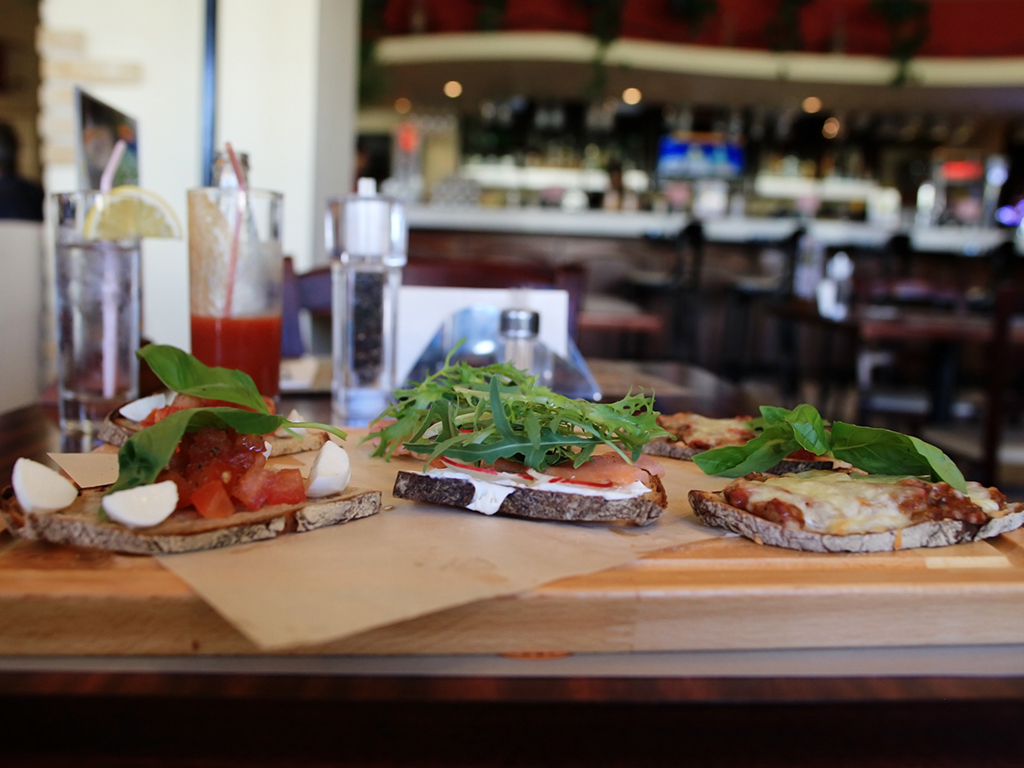NALED: VAT on Food Donations Should Be Removed
According to the data of the UN Food and Agriculture Organization, a third of the food produced in the whole world is never eaten.
Most European countries have long since started implementing various regulations and incentives in order to respond to this global problem. In that respect, Serbia is quite behind, since around 250,000 tons of edible food is thrown out annually, that is, 30 to 40 kilograms per capita, according to the website of the NALED.
Although it is impossible to find a solution overnight, the NALED proposes to start activating the prevention measures, that is, the implementation of the obligation for all retail facilities and restaurants to donate food which is about to expire, so as to avoid its turning to waste. According to the latest amendments to the Law on Food Safety, the shelf life of groceries is defined – the best before date and the expiration date, which is precisely the opportunity to donate the groceries in that period.
What’s missing at the moment and what needs to be implemented are tax exemptions for all those who have surplus food, so as to redirect it where it is most needed, without paying the VAT.
Another thing that should be done, and the countries of Western Europe have set a good example here, is to implement an obligation for all big kitchens that produce more than 50 meals a day to separate biowaste and hand it over to an authorized operator for further processing. Together with edible food, the amount of waste which is produced during the processing, sale and use, eventually reaches 900,000 tons, which is slightly less than a half of the total municipal waste in Serbia.
Although the legal obligation exists and all restaurants are obliged to hand over food waste to an operator, only 13% of restaurant and bar owners do so, due to the high costs of the treatment. Unlike waste edible oil, for whose separation they get money from the operator, in the case of food, they have to pay for each kilogram, because, under the current conditions, it doesn’t pay off for operators to take waste without a compensation. That’s one of the main reasons why 99% of food leftovers from kitchens and “from the plate” still end up at landfills.
Most European countries have long since started implementing various regulations and incentives in order to respond to this global problem. In that respect, Serbia is quite behind, since around 250,000 tons of edible food is thrown out annually, that is, 30 to 40 kilograms per capita, according to the website of the NALED.
Although it is impossible to find a solution overnight, the NALED proposes to start activating the prevention measures, that is, the implementation of the obligation for all retail facilities and restaurants to donate food which is about to expire, so as to avoid its turning to waste. According to the latest amendments to the Law on Food Safety, the shelf life of groceries is defined – the best before date and the expiration date, which is precisely the opportunity to donate the groceries in that period.
What’s missing at the moment and what needs to be implemented are tax exemptions for all those who have surplus food, so as to redirect it where it is most needed, without paying the VAT.
Another thing that should be done, and the countries of Western Europe have set a good example here, is to implement an obligation for all big kitchens that produce more than 50 meals a day to separate biowaste and hand it over to an authorized operator for further processing. Together with edible food, the amount of waste which is produced during the processing, sale and use, eventually reaches 900,000 tons, which is slightly less than a half of the total municipal waste in Serbia.
Although the legal obligation exists and all restaurants are obliged to hand over food waste to an operator, only 13% of restaurant and bar owners do so, due to the high costs of the treatment. Unlike waste edible oil, for whose separation they get money from the operator, in the case of food, they have to pay for each kilogram, because, under the current conditions, it doesn’t pay off for operators to take waste without a compensation. That’s one of the main reasons why 99% of food leftovers from kitchens and “from the plate” still end up at landfills.
Only logged-in users can comment.


 Izdanje Srbija
Izdanje Srbija Serbia Edition
Serbia Edition Serbische Ausgabe
Serbische Ausgabe Izdanje BiH
Izdanje BiH Izdanje Crna Gora
Izdanje Crna Gora














 LinkedIn
LinkedIn Email
Email Copy link
Copy link


